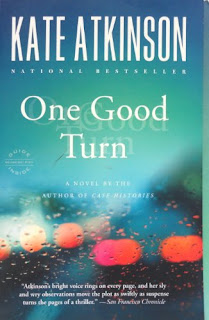So what happened to encyclopedias? Why don't they exist anymore? The Internet, right? Well, no, says Simon Winchester in his book Knowing What We Know. They were done in by knowledge. Knowledge began expanding too rapidly for a printed encyclopedia to keep up.
Winchester writes: "The Britannica started showing its age, appearing to be long past its sell-by date, dying on its feet The pace of change was beyond the capacity of so unwieldy and arthritic a behemoth to record it. It had become a myth. It had become a victim of its own gargantuan ambition."
An encyclopedia took years to assemble, then became outdated long before it got into print and on anybody's shelf. The Encyclopedia Brittanica stopped publication in 2012, but it was essentially dead long before that. And it outlasted most other multi-volume encyclopedias.
Much the same is true of dictionaries and other kinds of reference books. There are quicker, cheaper, more reliable ways of obtaining the latest information. New words are added to the vocabulary and old words change their meanings faster than a printed dictionary can produce a new edition.
Those encyclopedias and dictionaries that remain in print are usually single volumes that collect information that doesn't change much, or doesn't change rapidly, such as a Bible dictionary.
Encyclopedias probably served their purpose, but I doubt that many people miss them. I only rarely ever opened it even when I had a set in my home. It may have been comforting to have all that knowledge there, easily available even if rarely used, but the books took up so much space and cost so much money that they were impractical for most people. I had a set only because the local library didn't want it any longer and I thought, mistakenly, that it might be useful.
Several years ago A.J. Jacobs read the entire Encyclopedia Britannica from beginning to end and wrote a book about the experience, The Know-It-All. The successful book was published in 2005, or not long before the printed version was abandoned for good. He may be among the very few people who ever actually got their money's worth.





















.jpg)















